-
[email protected] -
Submit Now
By OpenConf System
speakers
Keynote Speakers
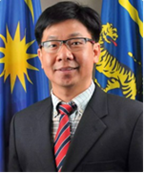
Prof. Chong Wen Tong
University of Malaya, Malaysia
Prof. Ir. Dr. Chong Wen Tong is currently a full professor in the Department of Mechanical Engineering at University of Malaya (UM), Malaysia. He is also the Head of UM Centre for Energy Sciences. He joined UM after spending 10 years in various industries, including Dyson and Sony. He is a Chartered Engineer registered by the Engineering Council (UK) since 2014. Prof. Chong's research interests are Renewable Energy&Green Technology, Wind Turbine Technology, Industrial Aerodynamics and Innovative Product Design. He has co-authored >180 research articles with the H-Index – 48 (WoS). He is the Editorial Board Member of the International Journal of Green Energy&International Journal of Precision Engineering and Manufacturing-Green Technology. He was selected for the 2019 Top Research Scientists Malaysia by the Academy of Sciences Malaysia, and 2020, 2021, 2022&2023 World's Top 2% Scientists by Stanford University. Prof. Chong has won more than 25 invention and innovation awards in various international innovations&inventions fairs, including iENA (Germany), SIIF (Korea)&WIAC. He also won Second Place in the Royal Academy of Engineering's Leaders in Innovation Fellowships – Final Pitch Session 2016/17. In 2016; he won the First Prize of National-Intellectual-Property-Award 2016 and WIPO Medal for his invention, Cross-Axis-Wind-Turbine which his team is collaborating with PETRONAS to commercialize it. He is the Conference Chair of the International Conference on Sustainable Energy and Green Technology. In 2023, he was elected as Fellow, Academy of Sciences Malaysia (FASc). Prof. Chong was also appointed as the Chief Juror of the International Innovation Awards in Malaysia Technology Expo, MTE 2023&2024.
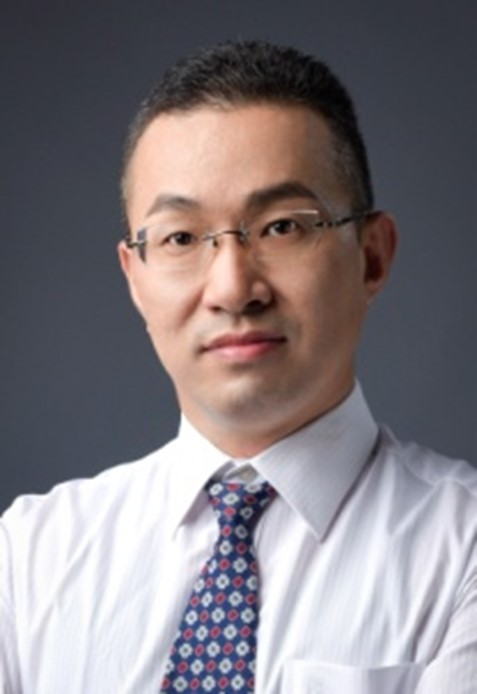
Prof. Jichun Ye
Ningbo Institute of Materials Technology and Engineering, Chinese Academy of Sciences, China
Prof. Ye received his bachelor degree from the University of Science and Technology of China in 2001, and Ph.D degree from University of California, Davis in 2005, both in the field of materials science. After graduation, he joined Spansion Inc. (a spinoff of AMD in the business of NOR flash memory) and later on moved to solar cells companies in Silicon Valley. In August 2012, he joined Ningbo Institute of Materials Technology and Engineering (NIMTE), CAS, to continue his researches in silicon-based solar cells, perovskite tandem solar cells, and wide-bandgap semiconductor devices. He is now the deputy director of New Energy Technology Institute, a subsidiary institute to NIMTE. He, as a group leader, has built a research team with 15 full-time staffs and 90 graduate students. He has published more than 260 papers in the top journals (including Nature Energy, Joule, EES, AM, and Nature Comm.) with 6300 citations (Google) and H index of 42, and 3 book chapters. He has also applied/awarded 260/110 patents. His group has undertaken more than 100 research projects and fulfilled 2 technology transfers. His group developed tube-PECVD based TOPCon technology and promoted the industrial application as the mainstream technology in the Si-based solar industry. He is now also the deputy director of the academic committee of Zhejiang Key Laboratory of Solar Energy Utilization and Energy Saving Technology, the deputy director of Zhejiang Provincial Engineering Research Center of Energy Optoelectronic Materials and Devices, and the deputy director of the academic committee of Ningbo Institute of Materials Technology and Engineering. He also serves as a reviewer for more than 60 international journals. He has been awarded the National Research Leader in Technology Innovation, the second prize of the Natural Science Award of the Ministry of Education, APVIA Award - Technological Achievement etc.
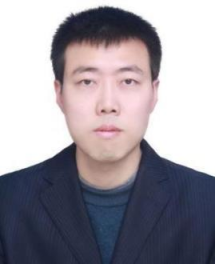
Assoc. Prof. Yang Li
Shihezi University, China
Yang Li, PhD, is an Associate Professor and PhD supervisor recognized as a first-tier talent at Shihezi University and a Tianchi lnnovation Leading Talent in the Xinjiang Uygur Autonomous Region. His research focuses on high-performance thin-film solar cells and their physical mechanisms. He has conducted research at renowned institutions such as Lanzhou University, Gachon University in Korea, and the City University of Hong Kong. Dr. Li has also been a visiting scholar at prestigious universities, including Nanyang Technological University and the University of Hong Kong. He serves as a technical advisor for multiple energy companies and has published over ten SCl indexed papers, contributing significantly to the field of perovskite solar cells.
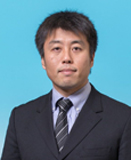
Assoc. Prof. Takahiro Matsueda
National Institute of Technology(NIT), Suzuka College, Japan
Takahiro Matsueda is an associate professor in the Department of Mechanical Engineering at the University of Toyama, Japan. He has investigated evaluation of fatigue strength of steel, stress intensity factors of microcrack, nondestructive testing and evaluation of material strength such as solar cell, ceramics and polymer. Takahiro Matsueda graduated from mechanical engineering at Kyushu University, Japan, in 2014. He majored in evaluation method of fatigue strength with notched steel in a PhD course. He was an assistant professor in the Department of Mechanical Engineering at the Tokyo Metropolitan University from 2015 to 2019. He has been an assistant professor in the Department of Mechanical Engineering at the University of Toyama from 2020. He has also won awards for research from international committees (ICSMMS, ICMEMSCE and ICMTM). Brief introductions of current research topics are as follows. Nondestructive evaluation of materials using AE and LT techniques Takahiro Matsueda’s research aims to reveal the mechanisms of microcrack initiation and accumulation, and their contribution to the electrical degradation during fatigue fracture. He detected and identified microcrack initiation using the acoustic emission (AE) and Lock-in thermography (LT) techniques. The electrical degradation of solar cell was evaluated by monitoring electrical power calculated from Current-Voltage (I-V) curve. Furthermore, microdamage contributing to the electrical degradation were identified by Lock-in thermography (LT). He proposed the method to evaluate microcrack initiation using the AE, LT and I-V curve. Prediction method of fatigue limit in metal materials Takahiro Matsueda is studying the new prediction method based on fracture mechanics for safely design. In particular, he focuses on improvement of the method to define the fatigue crack shape and propagating during fatigue test.
Speech title: Some Problems of Design Life of Flexible Solar Cell and Polymer Bearing Focused on Fatigue Fracture and Degradation
Invited Speakers
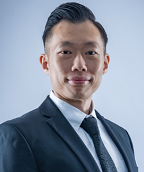
Assoc. Prof. Jiashen Teh
Universiti Sains Malaysia (USM), Malaysia
Dr. Jiashen Teh is a renowned academic and industry expert specializing in electrical power systems, renewable energy integration, and energy storage technologies. As the Director of the Power System Group at Universiti Sains Malaysia (USM), he leads cutting-edge research and innovation to address challenges in modernizing power grids and advancing renewable energy adoption.
Dr. Teh has made significant academic contributions, authoring over 80 high-impact journal articles and conference papers that have advanced knowledge in dynamic line rating systems, energy forecasting algorithms, and energy storage coordination. His research is supported by more than RM1.1 million in funding, with over 86% secured as a principal investigator. His funding sources include the Malaysian Ministry of Higher Education, Universiti Sains Malaysia, and international collaborators such as UPE-Power & Megago Technologies Co. Ltd. (Taiwan) and Taif University (Saudi Arabia).
Dr. Teh’s industry collaborations include consultancy and training projects with over 30 companies, such as Malaysia Airlines, Intel Electronics, PETRONAS Technical Services, and Silterra Malaysia. These projects have focused on energy efficiency, grid reliability, and renewable energy integration, bringing measurable improvements to client operations.
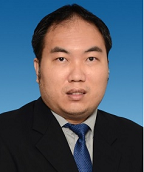
Prof. Bernard Saw Lip Huat
Universiti Tunku Abdul Rahman (UTAR), Malaysia
Prof. Ir. Ts. Dr. Bernard Saw is a Professor at the Lee Kong Chian Faculty of Engineering and Science and the Deputy Director of the Institute of Postgraduate Studies and Research at Universiti Tunku Abdul Rahman (UTAR). In 2015, he earned his Ph.D. from the National University of Singapore (NUS). He is also a registered Professional Engineer, Chartered Engineer, Professional Technologist, and an associate fellow of the Asean Academy of Engineering and Technology. His research interests include ventilation, computational fluid dynamics, thermal management, and renewable energy. Prof. Saw's pioneering research has earned recognition in both academia and industry, placing him among the top 2% of the world's most highly cited scientists, as published by Stanford University, and he won the Top Research Scientist Malaysia 2023 award. He has published more than 100 peer-reviewed papers in prestigious international journals and authored five books and book chapters. His innovative spirit extends to developing patented products and intellectual property. Additionally, he has received more than 30 awards from international and local competitions and has been recognized as an outstanding reviewer for more than 10 international journals. Prof. Saw also serves as an editorial member and guest editor for several international journals and actively contributes as a consultant and principal investigator for renowned international and national projects.
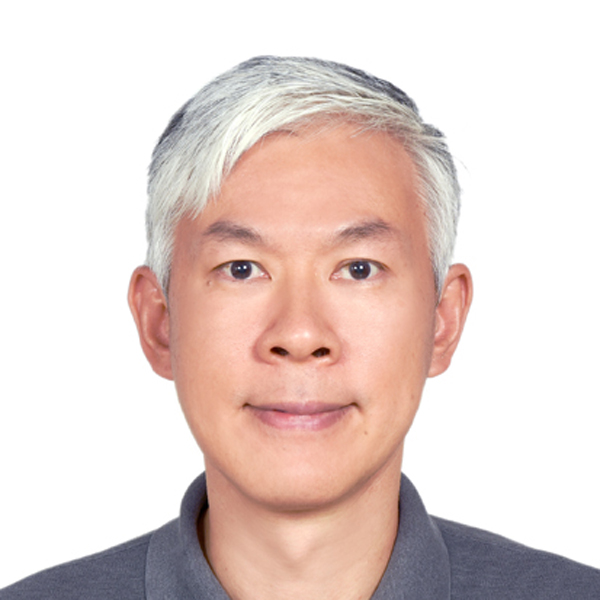
Prof. Hsun-Yi Chen
National Taiwan University
Professor Hsun-Yi Chen received his Ph.D degree from University of Michigan, Ann Arbor, majoring in materials science and engineering. He is a distinguished faculty member in the Department of Biomechatronics Engineering at National Taiwan University (NTU). He is also the director of Bioenergy Research Center at NTU. His research focuses on energy materials, particularly in the application of Li-ion batteries, redox flow batteries and supercapacitors. He is also devoted to the research of advanced ceramics fabrication and battery recycle. Professor Chen has a keen interest in investigating interfacial phenomena using both simulation and experimental approaches. He received NSTC’s Outstanding Young Scholar Research Grant for the periods of 2015-2018 and 2021-2023. Actively involved in the electrochemistry and energy research communities, his role in promoting interdisciplinary collaboration have established him as a pivotal figure in his field.
Speech title: Enhance Electrochemical Energy Storage Performance by Interface Engineering
